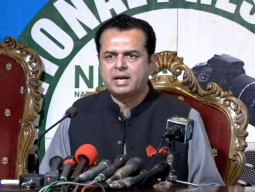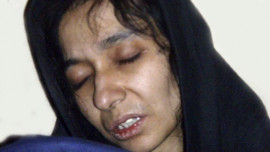Only 1% of the country’s population donates blood, much lower than the demand. Misconceptions regarding blood transfusion have been dispelled by modern science; conversely, it has proved that blood donation has many medical benefits.
These views were expressed by Cardiologist General (retd) Waqar Ahmed Khan, Safe Blood Transfusion Programme Project Director Dr Hasan Abbas Zaheer and National Youth Assembly President Hanan Ali Abbasi at an event in connection with World Blood Donor Day held at Kalsoom International Hospital in Islamabad on Saturday.
Speaking at the event, Gen Khan said the theme of this year’s World Blood Donor Day was to express thanks to blood donors and encourage more people to donate blood.
Dr Zaheer made a presentation on the significance of World Blood Donor Day and briefed participants on blood safety system reforms introduced in the country by the present government. He also shared the progress of the project.
“The day is a chance for blood donors and blood recipients to pause and reflect on the role they play in each others’ lives,” said the National Youth Assembly President Hanan Ali Abbasi. “All donors are important, but this year, we would like to especially recognise young donors.” “With increasing life expectancy and the subsequent increase in the number of age-related chronic diseases that require blood and blood products for treatment such as cancer, demand outstrips supply,” said Blood Transfusion Programme Coordinator Dr Uzma.
In low income countries like Pakistan, where diagnostic facilities and treatment options are limited, most transfusions are prescribed for the treatment of complications during pregnancy and childbirth, the management of severe childhood anaemia, trauma and congenital blood disorders. In many situations, current health systems are unable to meet needs, while the expansion of health coverage and improved access to health services further increases demand.
All blood is tested for four types of diseases, HIV, hepatitis, syphilis, and malaria, Dr Uzma said, adding that blood containing one of these diseases is destroyed.
Published In The Express Tribune, June 17th, 2012.







1732355030-0/BeFunk_§_]__-(41)1732355030-0.jpg)


1732356840-0/Copy-of-Untitled-(1)1732356840-0-270x192.webp)






COMMENTS
Comments are moderated and generally will be posted if they are on-topic and not abusive.
For more information, please see our Comments FAQ